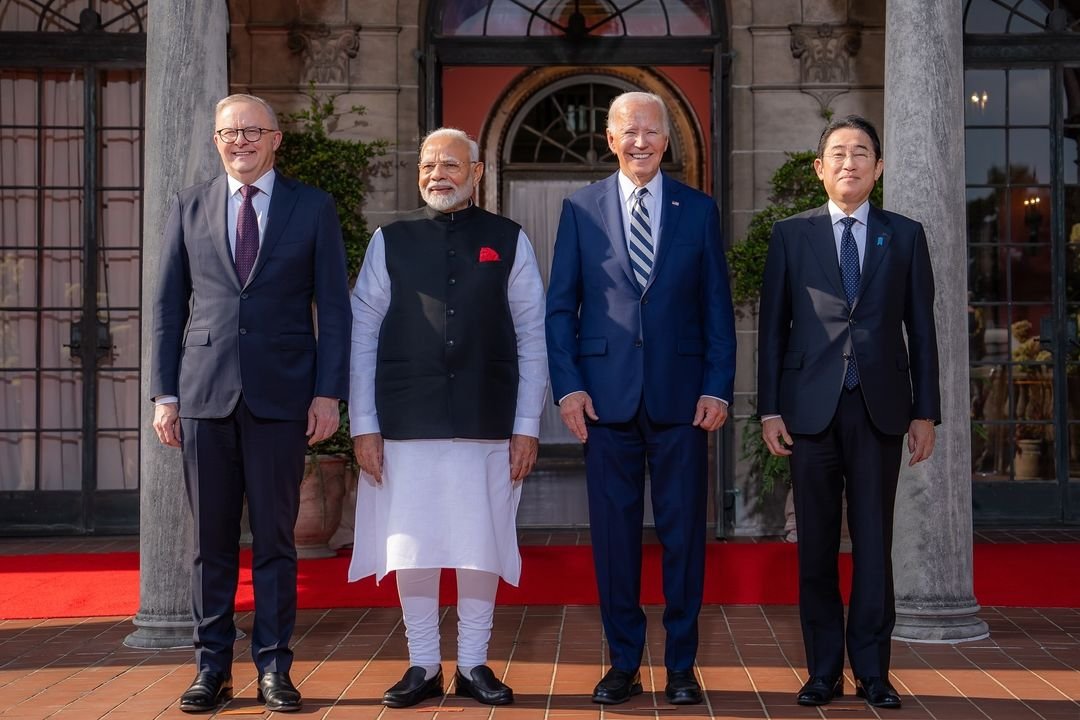Information about the entire journey of Narendra Modi From his Birth till Now.
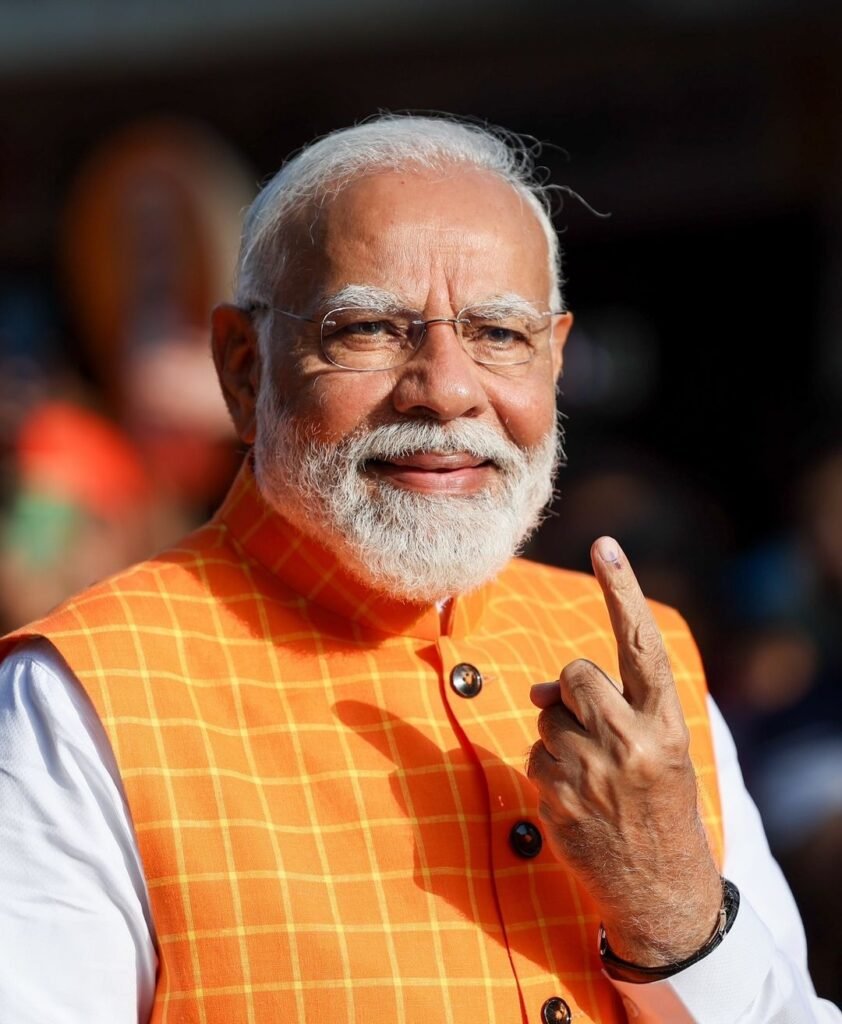
- Full Name : Narendra Damodardas Modi
- Date of Birth : 17 September,1950
- Place of Birth : Vadnagar Gujrat, India
- Political Party : Bharatiya Jnata Paarty (BJP)
From tea seller to world leader: Narendra Modi’s inspirational journey.
From tea seller to world leader: Narendra Modi’s inspirational journey.
Narendra Modi’s journey from humble beginnings to becoming one of the world’s most influential leaders is a testament to the power of determination, hard work and perseverance.
Born in a simple family, his remarkable journey from humble beginnings as a tea seller at a railway station to becoming one of the most influential global leaders is an extraordinary story of determination, grit and visionary leadership.
Modi’s journey from selling tea to leading the world’s largest democracy is a ray of hope and inspiration for millions.
Narendra Modi, the 14th Prime Minister of India, is a name that resonates in the hearts of billions of people across the world.
Modi’s life reflects the principle of never giving up and striving for excellence, no matter how humble one’s beginnings are. This article will discuss his inspirational journey in depth.
From tea seller to world leader | Early Life and Humble Beginnings.
Narendra Modi was born on September 17, 1950, in Vadnagar, a small town in the Mehsana district of Gujarat, India. He was the third of six children in a family that struggled to make ends meet. His family belonged to the Ghanchi-Teli community, which is classified as an OBC (Other Backward Class). Despite financial difficulties, Modi’s parents instilled in him the values of discipline and perseverance.
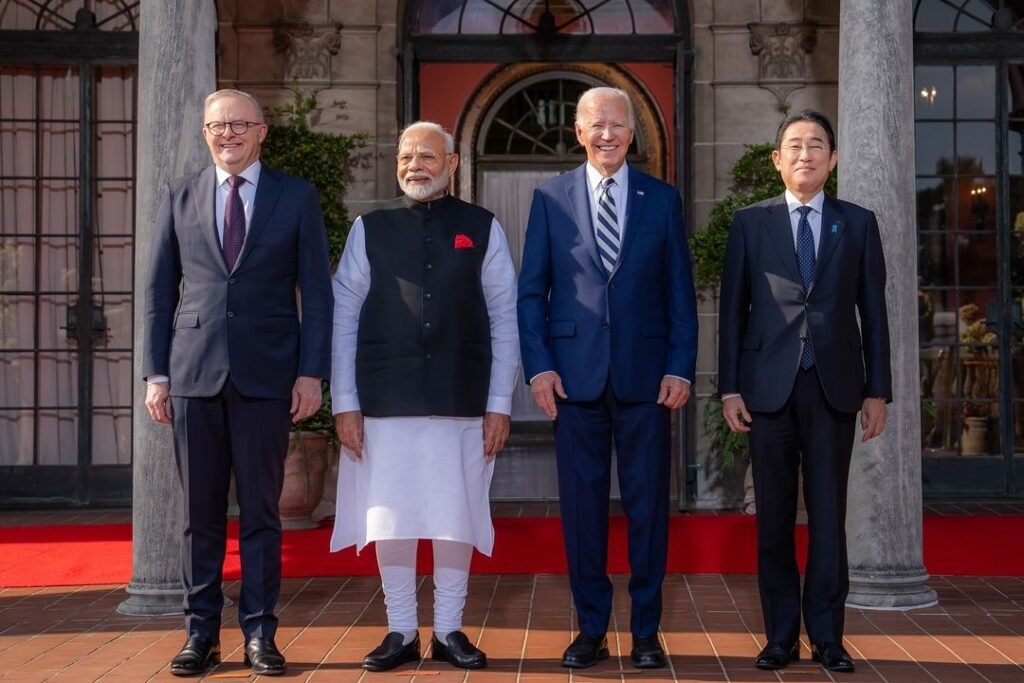
As a young boy, Modi helped his father sell tea at the local railway station. Later, he ran a small tea stall with his brother.
The Values of Simplicity and Hard Work.
Growing up in a family of limited means, Narendra Modi imbibed the values of hard work, resilience, and humility. His mother, Heeraben, played a pivotal role in shaping his character. She instilled in him the principles of honesty, compassion, and an unwavering commitment to his goals. These values became the foundation upon which he built his extraordinary career.
Education and Early Life | Early Interests.
Although Narendra Modi faced a lot of financial difficulties, he was keen on education and self-improvement. He completed his schooling in Vadnagar, where he developed strong debating skills and an interest in public speaking. His curiosity about India’s culture and spirituality led him to travel widely across the country and explore diverse traditions and practices.
Narendra Modi’s travels allowed him to develop a deep understanding of India’s grassroots issues, which later became important in shaping his political career.

Call to the Service: Joining RSS | Call to Public Service.
Narendra Modi, in his teenage years, was greatly inspired by the teachings of Swami Vivekananda, which kindled his passion for service. He joined the right-wing Hindu nationalist organisation Rashtriya Swayamsevak Sangh (RSS) at the age of eight. As an RSS pracharak, Narendra Modi dedicated himself to social work, discipline and nation building. The RSS years honed his organisational and leadership skills, giving him a strong foundation for his future role in politics. And then over the years his association with the RSS grew stronger and eventually he became a full-time pracharak in 1971.
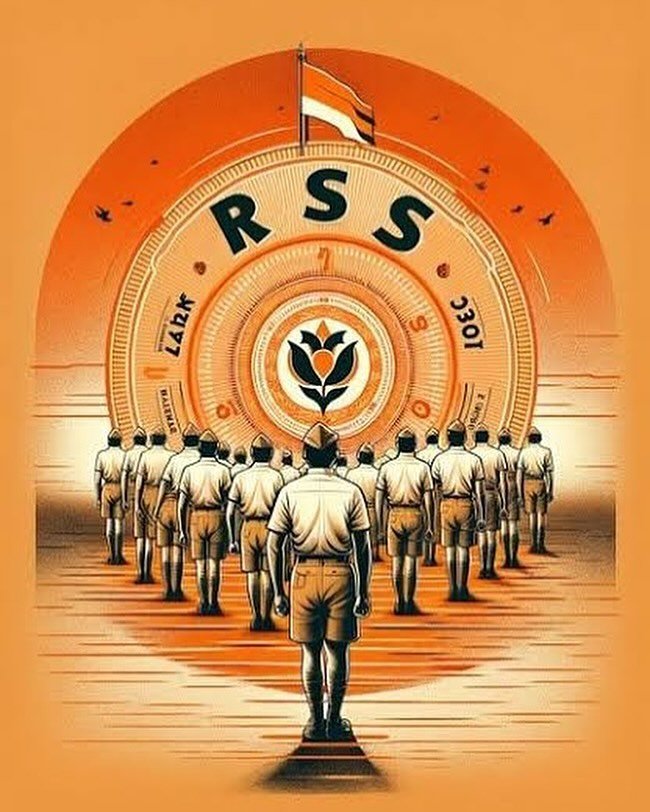
Learning the art of leadership.
During his tenure with the RSS, Narendra Modi honed his organisational skills and learnt the nuances of leadership. He worked tirelessly on various social projects, from flood relief efforts to campaigns for national integration. These experiences were helpful in building his political skills and preparing him for bigger roles in public service.
Entry into Politics | Entry into Politics.
Narendra Modi’s formal entry into politics began in 1985 when he joined the Bharatiya Janata Party (BJP). His commitment, strategic thinking and ability to connect with people earned him recognition within the party. Over time, he played a key role in strengthening the BJP’s base in Gujarat and other states.
In 2001, a pivotal moment came when Modi was appointed the Chief Minister of Gujarat, marking the beginning of his rise to national fame.
Narendra Modi’s formal entry into politics took place in 1985, when he joined the Bharatiya Janata Party (BJP). The BJP, aligned with the ideology of the RSS Rashtriya Swayamsevak Sangh, recognised Modi’s potential and entrusted him with important organisational roles. His ability to formulate strategies and connect with people earned him a reputation as a trustworthy and visionary leader within the party.
Building the BJP in Gujarat.
Modi’s early political assignments included strengthening the BJP’s presence in Gujarat. He organized innovative campaigns, such as the Ekta Yatra (Unity March), which helped galvanize support for the party. His efforts paid off when the BJP emerged as a significant political force in Gujarat.
Gujarat Chief Minister: Transforming the State.
As the Chief Minister of Gujarat from 2001 to 2014, Modi focused on economic growth, infrastructure development and governance reforms. His policies such as the Jyotigram Yojana for rural electrification and the Vibrant Gujarat Summit for investment promotion transformed Gujarat into an economic powerhouse.
Under Narendra Modi’s leadership, Gujarat achieved remarkable progress in sectors such as agriculture, industry and renewable energy. This success earned him a reputation as a leader who delivers results.
Narendra Modi got his big political break in 2001 when he was appointed the Chief Minister of Gujarat. At the time, Gujarat was reeling from a devastating earthquake and was battling economic stagnation. Modi’s leadership brought about a transformational change in the state.
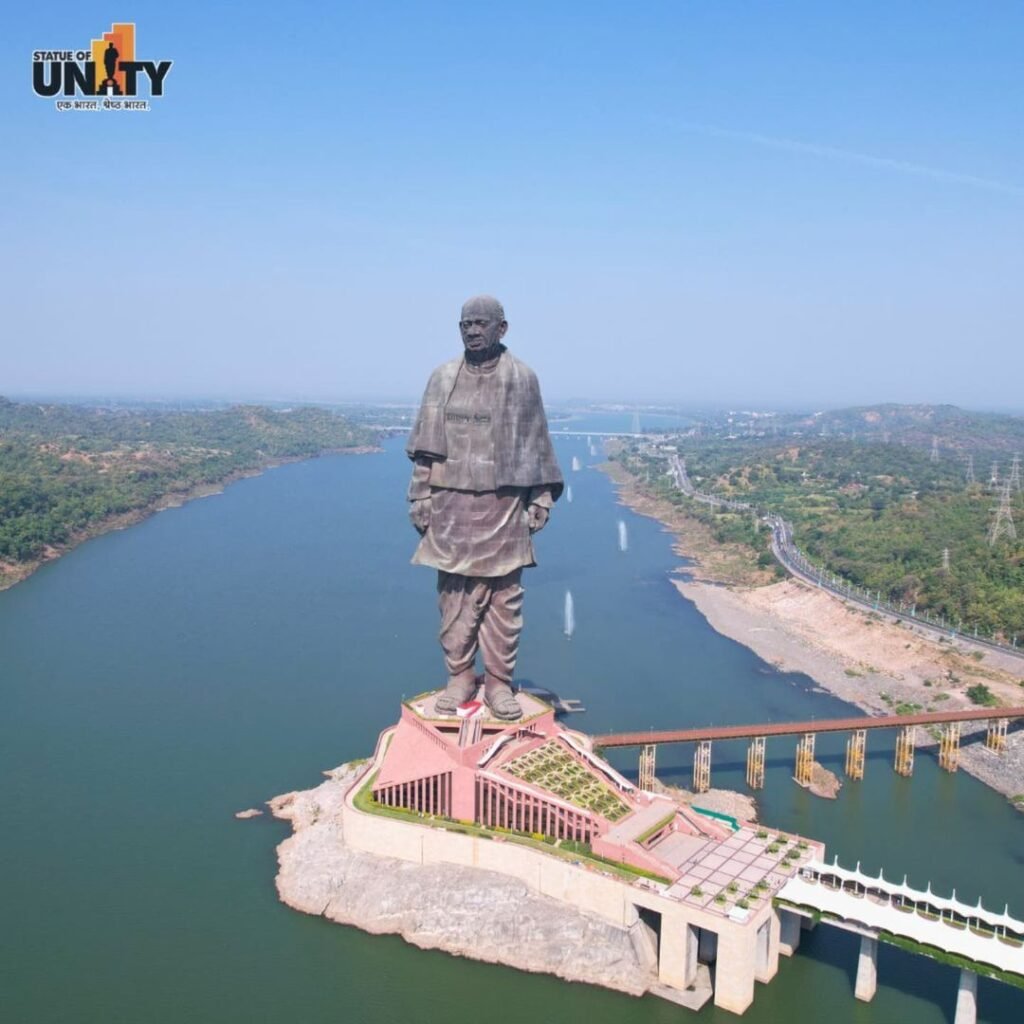
Rise to National Leadership.
In 2014, Narendra Modi was chosen as the BJP’s prime ministerial candidate. Running on the promise of “achche din“, he ran an inspiring campaign that appealed to millions across India. Narendra Modi emphasised on economic growth, anti-corruption measures and a vision for a self-reliant India.
The BJP won a historic mandate in the 2014 general elections and on May 26, 2014 Narendra Modi was sworn in as the 14th Prime Minister of India.
Landmark Initiatives as Prime Minister.
As Prime Minister, Narendra Modi launched a number of transformative initiatives like.
- Swachh Bharat Abhiyan (Clean India Mission):
- Aimed at improving sanitation and eliminating open defecation.
- Ayushman Bharat Under the Ayushman Bharat scheme, millions of poor families received health insurance coverage, making healthcare accessible and affordable for the underprivileged
- Make in India:
- Encouraged manufacturing and foreign investment to boost the economy.
- Make in India: Manufacturing and foreign investment encouraged to boost the economy.
- Modi launched the Make in India initiative to promote manufacturing and create jobs. The program attracted foreign investment and established India as a global manufacturing hub.
- Digital India:
- Focused on digital infrastructure and e-governance.
- The Digital India campaign aims to bridge the digital divide by promoting e-governance, digital literacy and internet connectivity in rural areas.
- Jan Dhan Yojana:
- Promoted financial inclusion by opening millions of bank accounts.
- Addressing Rural Development:
- One of Modi’s landmark achievements as Chief Minister was the Jyotigram Yojana, which ensured round-the-clock electricity in rural areas. He also promoted water conservation projects and modernized the agricultural sector, making Gujarat a model state in India.
- Modi’s leadership during the COVID-19 pandemic, particularly with vaccine distribution and relief measures, further showcased his ability to handle crises effectively.
Visionary Reforms and Economic Growth.
Narendra Modi focused on rebuilding Gujarat’s infrastructure and reviving its economy. Under his leadership, the state implemented policies that attracted investment and boosted industries such as manufacturing, agriculture, and renewable energy. Initiatives such as the Vibrant Gujarat Summit transformed the state into a global investment hub.
From State Leader to National Icon.
Narendra Modi’s success as Gujarat’s chief minister brought him national prominence. His style of governance, which included a focus on results and a pro-development agenda, became popular among people across India. In 2014, the BJP chose Modi as its prime ministerial candidate for the general elections.
The 2014 Election Campaign.
Narendra Modi’s 2014 campaign was a masterclass in political strategy. With slogans like “Achhe Din Aane Wale Hain” (Good days are coming), he promised economic growth, job creation, and corruption-free governance. His electrifying speeches, use of social media, and ability to connect with voters helped the BJP secure a historic mandate.
On May 26, 2014, Narendra Modi was sworn in as the Prime Minister of India, marking the beginning of a new era in Indian politics.
As Prime Minister, Narendra Modi launched several groundbreaking initiatives aimed at transforming India. His policies emphasized economic growth, social inclusion, and technological advancement.
Global Leadership and International Recognition.
Narendra Modi’s influence extends far beyond India’s borders. He has redefined India’s foreign policy, fostering stronger ties with countries across the globe. His initiatives, such as the International Solar Alliance and the Neighborhood First Policy, have earned him recognition as a statesman of global stature.
Strengthening India’s Global Presence Modi has represented India at major international forums, including the United Nations, G20, and BRICS. His efforts in promoting renewable energy and addressing climate change have positioned India as a leader in sustainable development
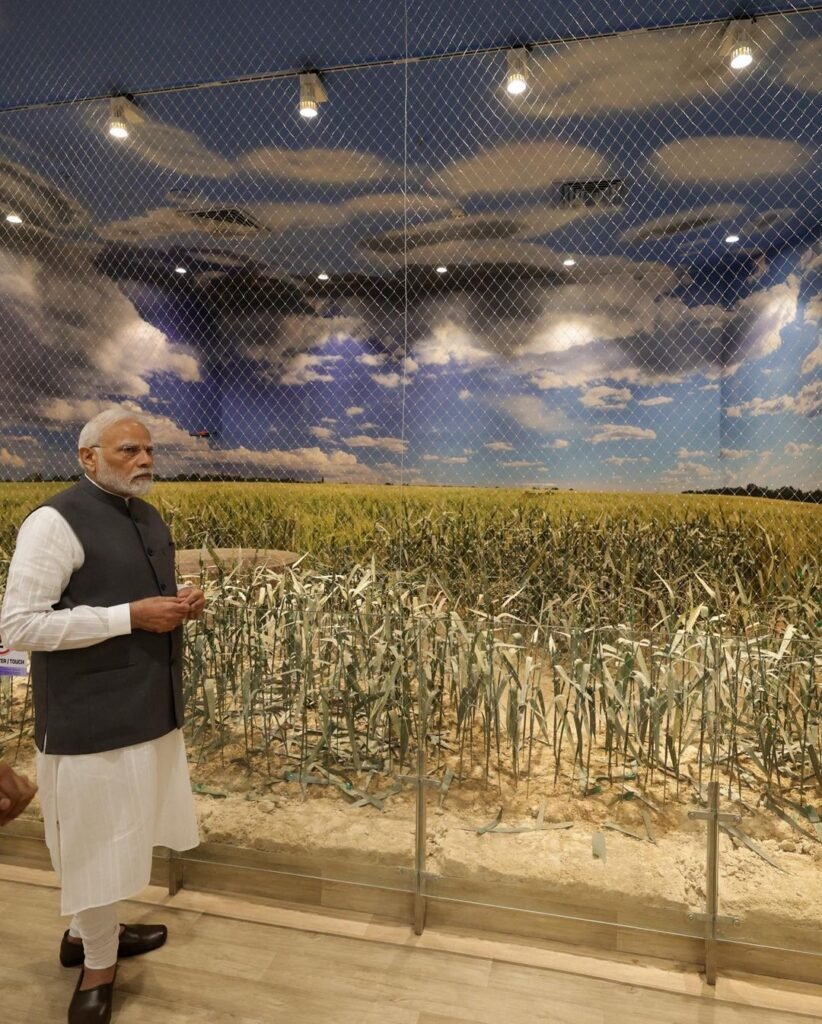
Challenges and Criticisms.
While Narendra Modi’s achievements are commendable, his tenure has not been without controversies. Critics have raised concerns over issues such as economic inequality, freedom of the press and rising communal tensions. Despite these challenges, Narendra Modi’s popularity has not diminished, as his supporters credit him for bringing stability and progress to the country
Despite his achievements, Modi’s tenure has not been without controversies. Critics have raised concerns over issues such as increasing polarization, freedom of the press and economic challenges. However, Narendra Modi’s ability to connect with the masses and his unwavering focus on his vision make him a prominent figure in Indian politics.
Challenges and Criticisms.
While Narendra Modi’s achievements are commendable, his tenure has not been without controversies. Critics have raised concerns over issues such as economic inequality, freedom of the press and rising communal tensions. Despite these challenges, Narendra Modi’s popularity has not diminished, as his supporters credit him for bringing stability and progress to the country
Despite his achievements, Modi’s tenure has not been without controversies. Critics have raised concerns over issues such as increasing polarization, freedom of the press and economic challenges. However, Narendra Modi’s ability to connect with the masses and his unwavering focus on his vision make him a prominent figure in Indian politics.
